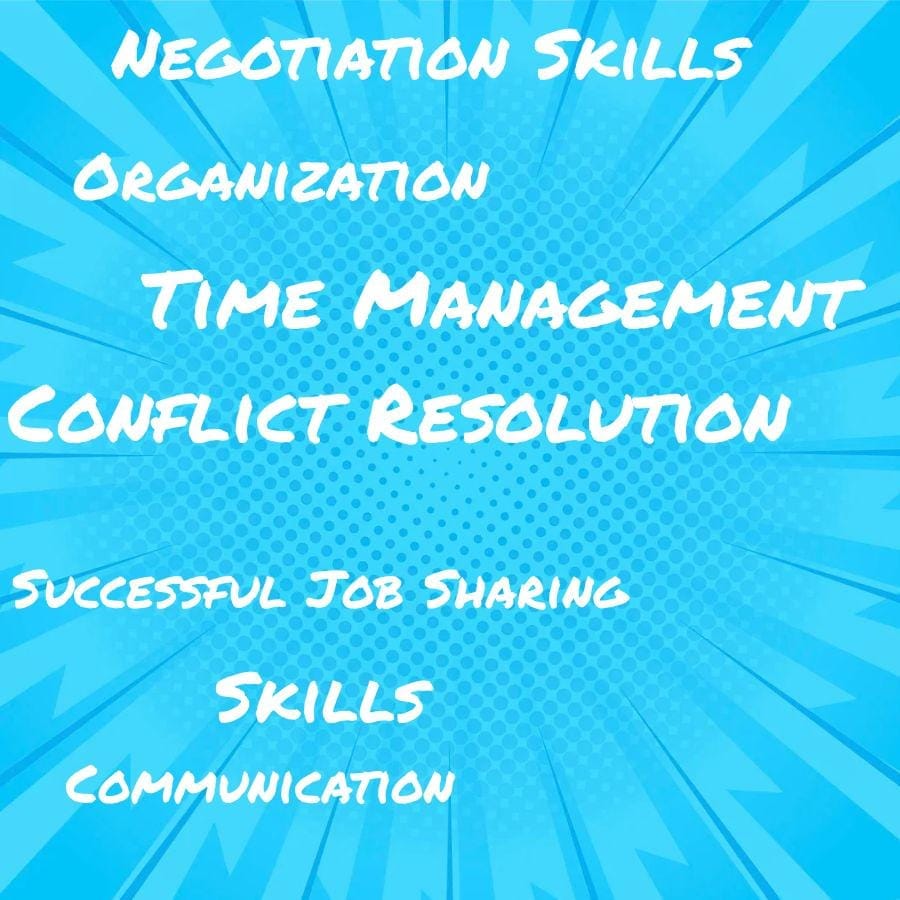Successful job sharing requires strong communication, organizational, and time-management skills. Additionally, the ability to collaborate and work well with others is essential.
Job sharing is becoming an increasingly popular way of working, allowing people to share the responsibilities and workload of a single job while still enjoying the benefits of full-time employment. However, successful job sharing requires more than just two people who are willing to work together—it also requires specific skills and abilities that can help ensure the arrangement is successful.
In this blog post, we’ll explore what these skills are and how they can help make job sharing a success.
Communication

Job sharing requires two or more people to work together in order to complete a task, so it is important that all parties involved are able to effectively communicate with each other. This means being able to clearly and concisely express ideas, opinions, and expectations while also actively listening and understanding the perspectives of others.
Good communication skills involve being respectful of different points of view, asking questions when needed, and providing feedback in a constructive manner. Having strong organizational skills can help ensure that tasks are divided up fairly between team members and deadlines are met on time.
Organization
Job sharing involves two or more people working together to complete a single job, so it’s important that each person knows their role and responsibilities. This requires clear communication between the job sharers, as well as a plan for how tasks will be divided and completed.
It also means setting up systems to track progress and ensure that all deadlines are met. Organization is key in order to make sure everyone involved in the job share understands what needs to be done, when it needs to be done by, and who is responsible for completing each task.
Time Management
Job sharing requires two people to divide the responsibilities of a single job, so it is important that each person can manage their time effectively in order to complete their tasks on time and without any overlap. This means having the ability to plan ahead, prioritize tasks, set realistic goals and deadlines, and stay organized throughout the process.
It also involves being able to communicate with your partner about what needs to be done and when it needs to be completed. Good time management skills are necessary for successful job sharing because they help ensure that both partners are able to get their work done efficiently and without any confusion or delays.
Conflict Resolution
Job sharing involves two or more people working together to complete a single job, and it can be difficult to manage the different personalities and work styles that come with this arrangement. Conflict resolution skills help ensure that disagreements are handled in a constructive way, allowing the team to move forward without any lingering issues.
This includes being able to identify potential conflicts before they arise, as well as having effective communication strategies for when disagreements do occur. It also involves understanding how each person’s individual needs and goals fit into the overall objectives of the job share arrangement.
With these skills in place, job sharers can work together effectively while avoiding unnecessary conflict.
Negotiation Skills
Negotiating is the process of discussing and coming to an agreement on a particular issue or situation. In job sharing, negotiation skills are needed to ensure that both parties involved in the arrangement come away with a satisfactory outcome.
This includes negotiating roles and responsibilities, working hours, salary and benefits, vacation time, communication protocols, and other important details. Negotiation requires good communication skills as well as the ability to listen actively and understand different perspectives.
It also involves being able to compromise when necessary while still advocating for one’s own interests. With strong negotiation skills, job sharers can create an effective partnership that works for everyone involved.
Flexibility
Job sharing requires two or more people to divide the responsibilities of a single job, so it is important that each person involved be able to adjust their work schedule and workload as needed. This means being open to changes in hours, tasks, and roles within the team.
It also means being willing to take on additional duties when necessary and having the ability to communicate effectively with other members of the team. Being flexible allows everyone involved in a job share arrangement to make sure that all tasks are completed efficiently and on time.